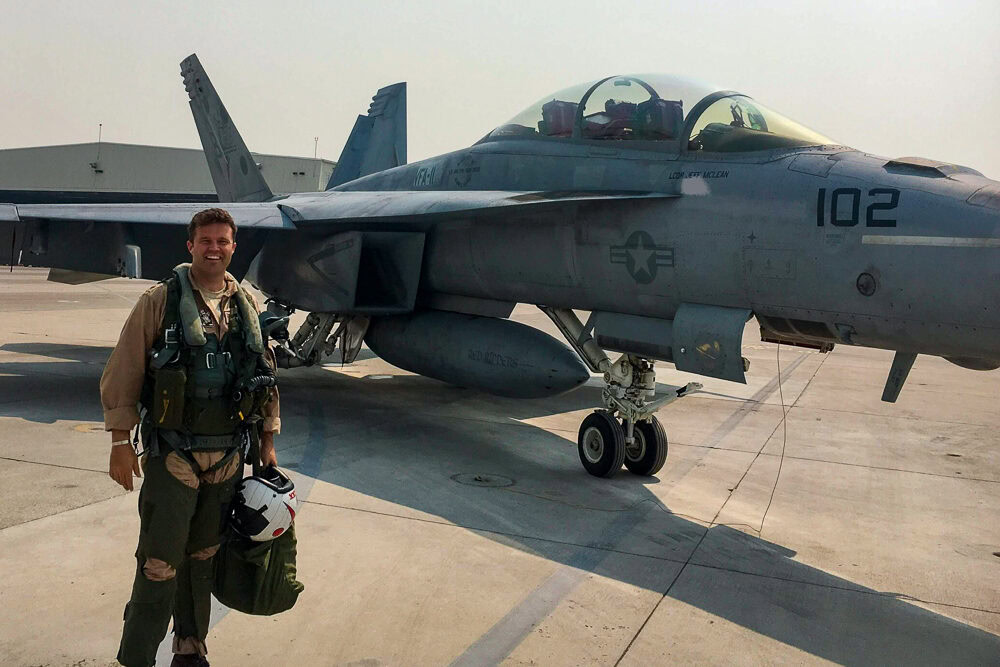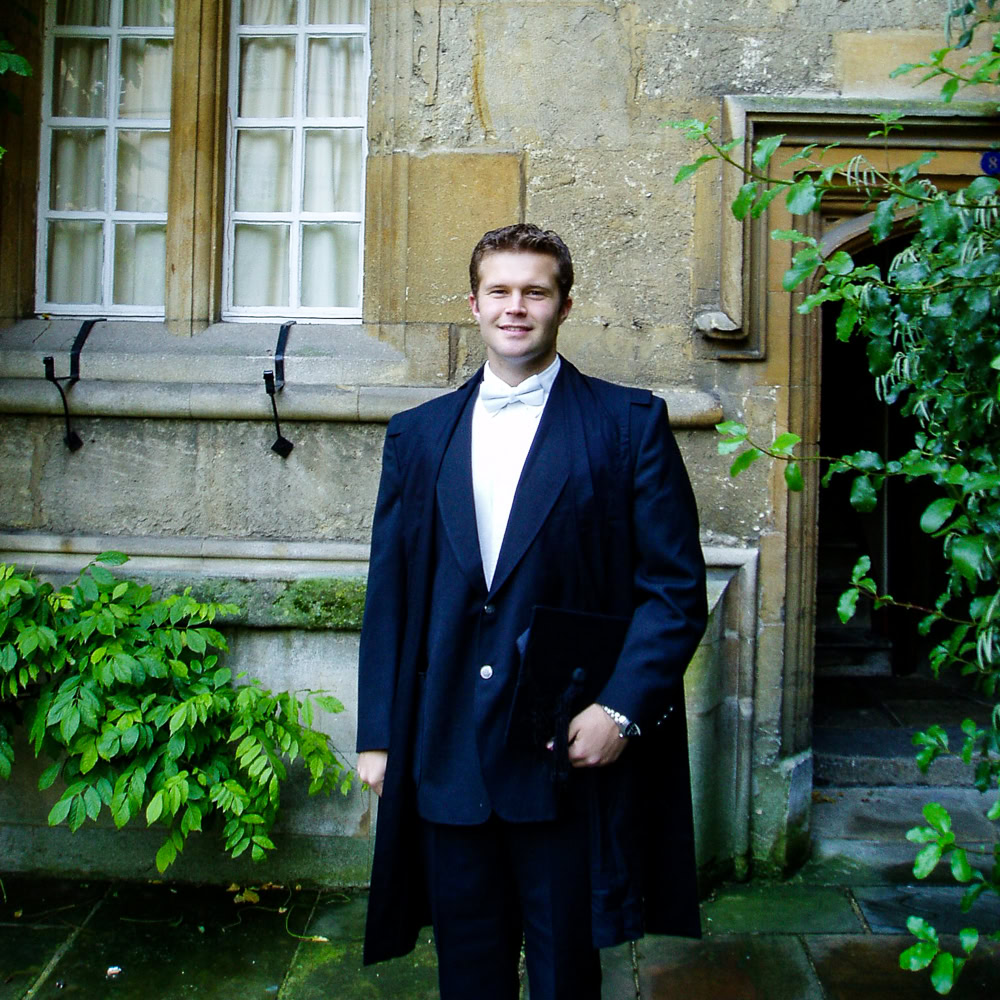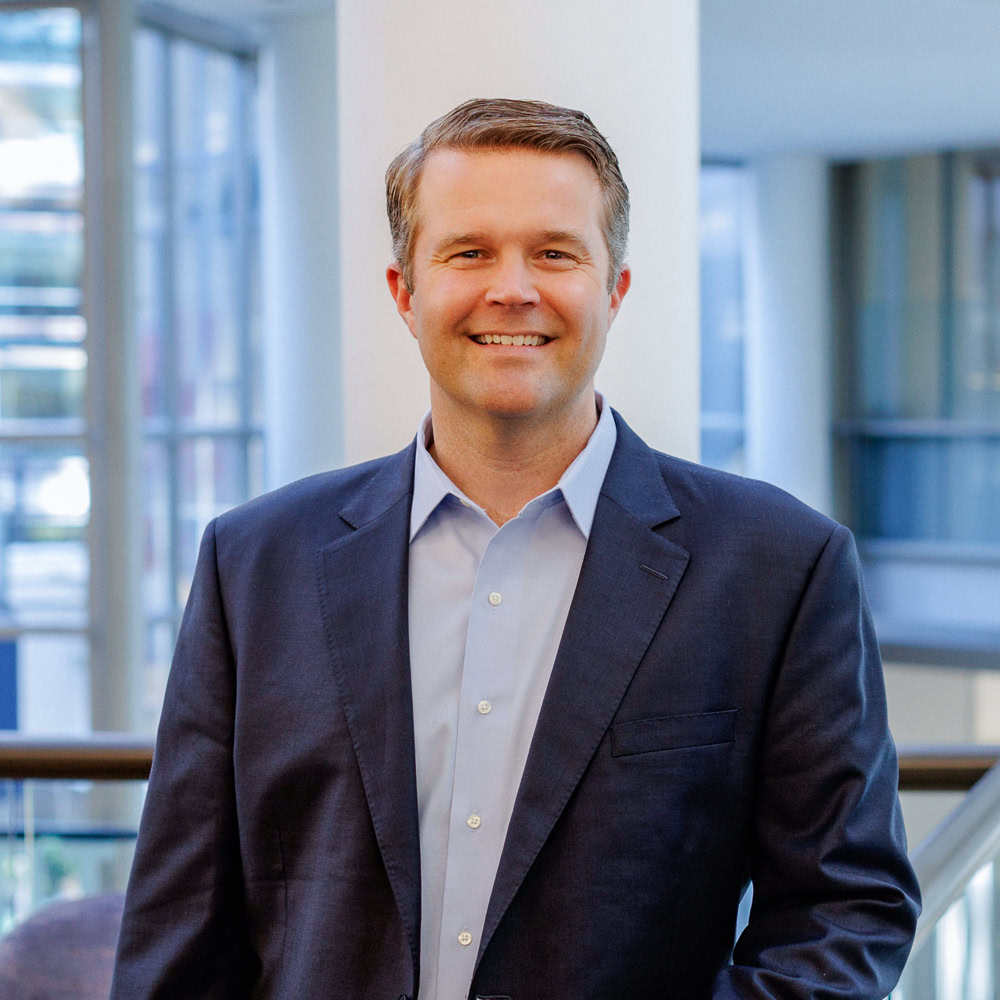
A former U.S. Navy fighter pilot and test pilot who is now the CEO of a corporate leadership advisory firm, Jeff McLean’s career embodies service, scholarship, and leadership.
McLean was first introduced to the Fulbright Program while at the U.S. Naval Academy and interning as a speechwriter at the Department of War. He was listening to a speech from a veteran and visiting official from the U.S. Department of State which persuaded him “how learning about other cultures made him a better officer and how much our world depends on leaders who can collaborate across borders,” said McLean. “I remember sitting there thinking, I’m going to apply for that.”
A few years later, McLean did just that — earning a Fulbright U.S. Student award to study international relations at Oxford University, focusing on the period between the two world wars. He found it fascinating to explore “how global dynamics and leadership decisions have shaped the world we live in today.”
McLean has attributed his “sense of self-reliance and working hard until the job was finished” to his earliest jobs bailing hay and feeding cows growing up in Wisconsin, and learning from the examples of his parents, a pilot for the U.S. Navy and a professor of education. As a young adult, his Fulbright experience profoundly shaped his leadership philosophy.
During his Fulbright exchange, he learned about the importance of the open exchange of ideas, noting “debating ideas at Oxford with professors and classmates from around the world sharpened my ability to think critically and independently and expanded my view of the world. The Fulbright experience deepened my commitment to service, strengthened my leadership as a Navy officer, and continues to shape how I lead today as a CEO.”


During his Fulbright year, McLean joined the Oxford Strategic Studies Group, which brought distinguished speakers from academia and the military to teach about diplomatic and military strategy. These interactions helped him develop the strategic mindset and global perspective that are essential qualities for effective leadership.
Going beyond academics, McLean views the immersive experience of living abroad, studying alongside classmates from every continent as invaluable for cultivating leadership. “You start to see the world through new lenses, to understand how others live and what they value. You also gain an appreciation for your own community, what makes it special, and how you might contribute when you return.”
McLean went on to serve as a Navy fighter pilot, completing three aircraft carrier deployments. He logged over 1,500 flight hours as aircraft commander of Navy fighter aircraft, including 51 combat missions supporting Operation Enduring Freedom over Afghanistan. The perspective he formed during his Fulbright experience carried through his Navy career.
“On my first deployment as a pilot, we’d have professors come aboard to brief us on the cultures and regions we were entering, kind of a crash course in global context,” explained McLean. “But for me, that thinking was already established. I could help my squadron connect what we were doing to the bigger picture, why it mattered, and how it fit into a broader mission.”
“That ability to connect the local to the global, the tactical to the strategic, made me a better officer and Mission Commander and helped our team find meaning in our work.”
As a Navy test pilot, he helped advance the revolutionary X-47B unmanned combat air system—the first aircraft of its kind to land on a carrier and achieve autonomous aerial refueling. During this demanding tour, he also earned his MBA from the University of Pennsylvania’s Wharton School, balancing military service with academic rigor. After subsequently serving as a White House Fellow in the Office of American Innovation, he embarked on his business career.
The lessons of Fulbright and the Navy—adaptability, strategy, and service—continue to guide McLean in his role as CEO and leadership advisor at ghSMART. The firm helps corporate boards, CEOs, and investors make better decisions and unlock greater impact across their organizations.
“Much like my Fulbright experience, our work is about understanding people in context, seeing how individual actions ripple across systems, teams, and cultures. The experience taught me to stay curious, listen deeply, and lead with perspective, all qualities that remain essential for leaders today.”
Graduating university students, recent graduates, graduate students, early-career professionals, early-career artists, language teachers, and others can apply to pursue graduate study or conduct research abroad through The Fulbright Study/Research Award, part of the Fulbright U.S. Student Program. Applicants design their own projects and will typically work with advisers at foreign universities or other institutes of higher education.